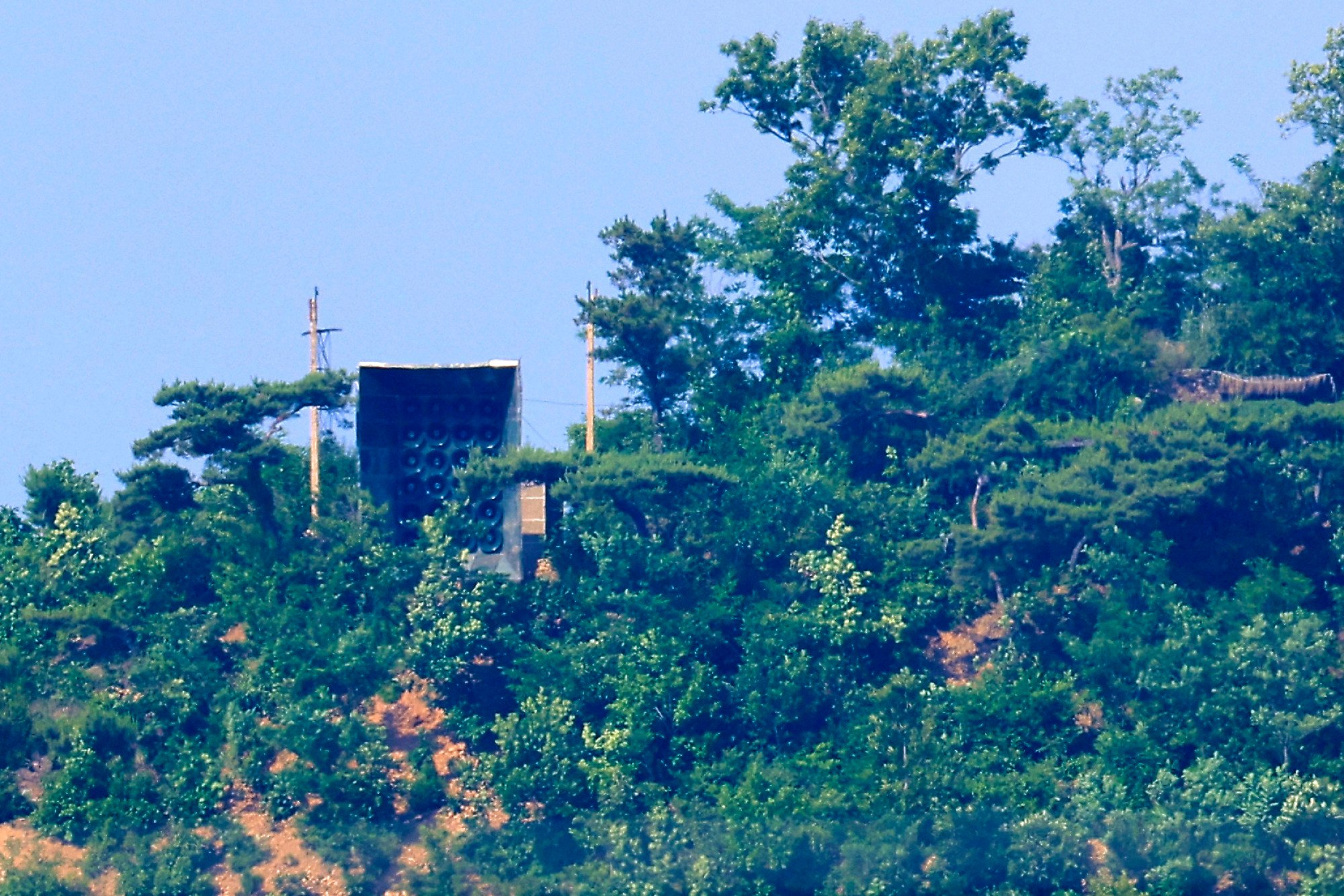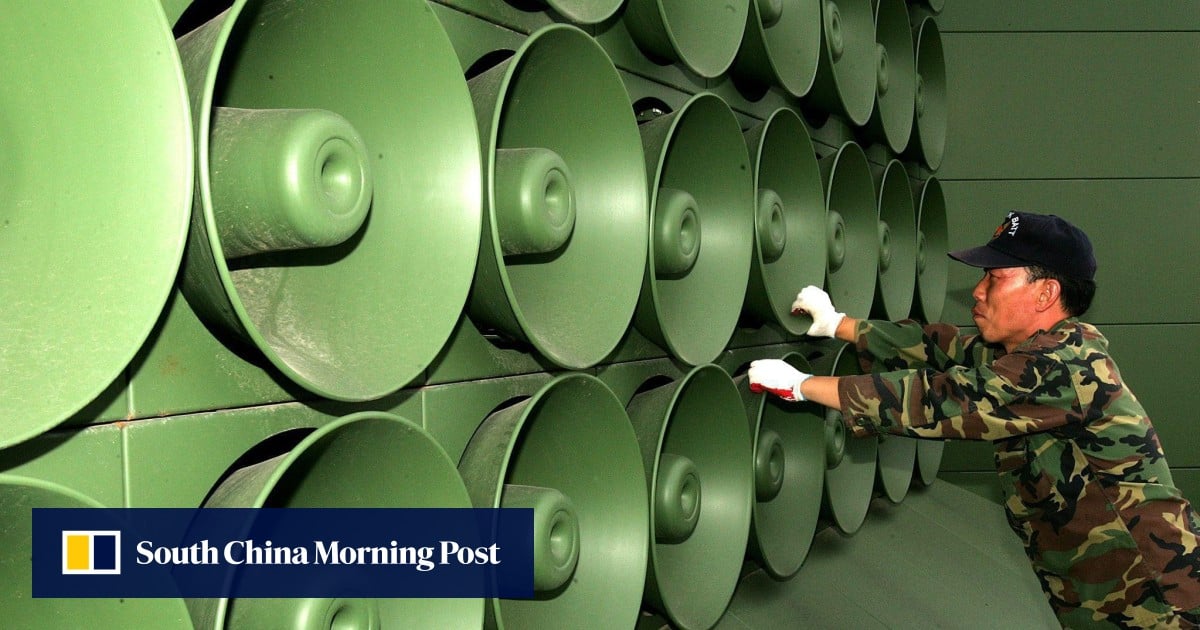The military says the systems were designed to blare pop music and political messages as far as 10km (6.21 miles), enough to reach the city of Kaesong and its nearly 200,000 residents.
But audits released at the time showed the new speakers did not meet those standards and were not as powerful as the military had called for.
According to former navy officer Kim Young-su, although the speakers passed two out of three initial tests in 2016, the trials took place in the morning or at night, when sound travels furthest.
South Korea rarely operates the speakers during those times now, so as not to disturb nearby South Korean residents as much, said Kim, who investigated and raised the issues to government corruption watchdogs and the police.
The issues led the Ministry of National Defence to sue the manufacturer, but a court dismissed the case, saying that too many environmental factors can affect the performance.
Tests in 2017 showed that messages or songs from the speakers could not be understood further than 7km, and more often closer to 5km, according to the audit and Kim, not enough to reach a city such as Kaesong.
The ministry said in a statement that performance may vary depending on conditions such as temperature, humidity, and terrain, but that it did not consider the loudspeakers’ performance to be restricted.

Kim Sung-min, who defected from the North in 1999 and runs a Seoul radio station that broadcasts news into North Korea, said the mountainous border terrain and North Korea’s own loudspeakers in the area further diminish the reach of South Korea’s psychological warfare.
North Korea’s broadcasts are less aimed at winning over people in the South and more at “suppressing” the South’s broadcasts by overpowering or muddling the message, he said.
“These broadcasts play a role in instilling a yearning for the outside world, or in making them realise that the textbooks they have been taught from are incorrect,” he said.
We know that the North Koreans find them partly effective because they have spent a lot of time getting them turned off
At least two North Korean soldiers from the front lines defected to the South in 2017 after listening to loudspeaker broadcasts, local media reported, citing South Korean officials.
The angry North Korean reaction to the broadcasts also suggests the loudspeakers strike a nerve with the authoritarian country, said Steve Tharp, a retired US Army officer who spent years working along the border.
“We know that the North Koreans find them partly effective because they have spent a lot of time getting them turned off,” he said.


